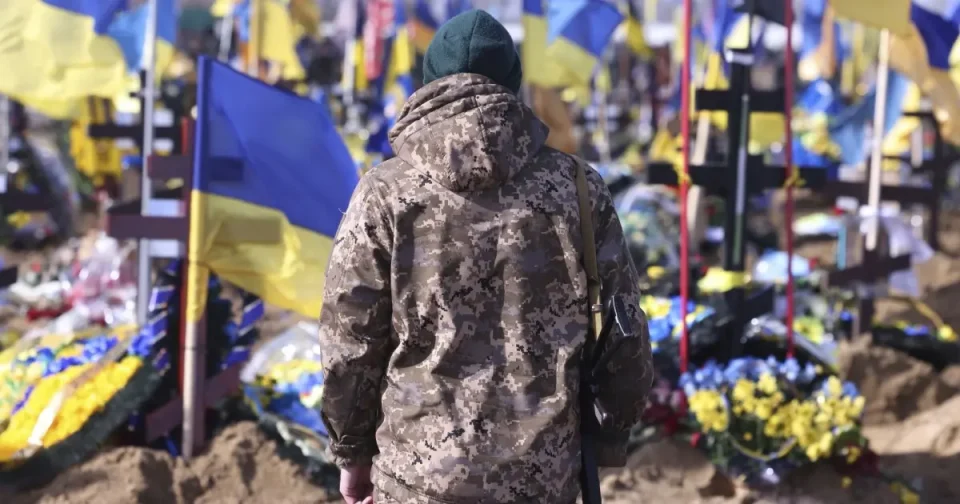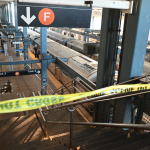Ukrainian sniper Oleksandr Matsievsky was captured by Russian forces during the early months of the full-scale invasion. A video later emerged showing him smoking his last cigarette in a forest, reportedly beside a grave he had been forced to dig. In the video, he boldly declared, “Glory to Ukraine!” just moments before gunfire erupted, ending his life.
This tragic incident is not isolated. In October, nine captured Ukrainian soldiers were allegedly shot dead by Russian forces in the Kursk region, prompting Ukrainian prosecutors to investigate reports, including disturbing images of half-naked bodies on the ground. One of the identified victims, drone operator Ruslan Holubenko, was recognized by his mother through his underwear. “I bought it for him before a trip to the sea,” she told local broadcaster Suspilne Chernihiv, visibly distraught.
The escalation of such executions continues. Ukrainian authorities are investigating accounts of beheadings and incidents where soldiers were killed with swords while their hands were bound. In another reported event, a video revealed 16 Ukrainian soldiers apparently being lined up and shot after surrendering. Some of these executions were captured on video by Russian soldiers, while others were monitored by Ukrainian drones from above.
The footage usually depicts the killings occurring in unremarkable wooded or open fields, complicating the verification of specific locations. However, BBC Verify has confirmed in several instances that the victims were wearing Ukrainian uniforms and that the videos are recent.
According to the Ukrainian prosecution service, at least 147 Ukrainian prisoners of war have been executed by Russian forces since the start of the full-scale invasion, with 127 of those cases occurring this year alone. “The upward trend is very clear, very obvious,” stated Yuri Belousov, head of the War Department at the Ukrainian Prosecutor-General’s Office. He highlighted that executions have become systematic since November of the previous year, particularly increasing during the summer and autumn months, indicating a broader policy behind the violence.
International humanitarian law, particularly the Third Geneva Convention, mandates the protection of prisoners of war, and executing them constitutes a war crime. Despite this, Ramzan Kadyrov, the Chechen leader, had previously instructed his commanders in the Ukraine conflict to “take no prisoners.”
Rachel Denber, Deputy Director of the Europe and Central Asia Division at Human Rights Watch, emphasizes that there is substantial evidence supporting allegations of Russian troops executing Ukrainian POWs. She raises critical questions about command responsibility and the clarity of guidelines regarding the treatment of prisoners. “If higher-ups are not investigating these acts or taking steps to prevent them, they are also criminally liable,” she stated.
Thus far, there is no indication that Russia is investigating claims that its forces executed Ukrainian POWs. Discussing similar allegations can lead to severe penalties in Russia.
In statements, Vladimir Putin has claimed that Russian forces have always treated Ukrainian POWs “in strict accordance with international legal documents and conventions.”
While allegations have surfaced of Ukrainian forces executing Russian POWs, these reports have been significantly fewer in number. Belousov assured that the Ukrainian prosecution service is investigating such allegations seriously, although no charges have been filed yet.
Since the invasion began in February 2022, Human Rights Watch asserts that Russian forces have committed numerous violations, many of which warrant classification as war crimes or crimes against humanity. The alarming climate of abuse has led some Ukrainian soldiers to prefer death over capture. Holubenko’s mother recounted her son’s determination: “He told me: Mum, I’ll never surrender, never. Forgive me, I know you’ll cry, but I don’t want to be tortured.” Currently classified as missing in action, she holds out hope for his return. “I want to believe, I don’t want to think that he’s gone.”
Credit: BBC News




